Conclusion of KDE's Google Summer of Code 2024
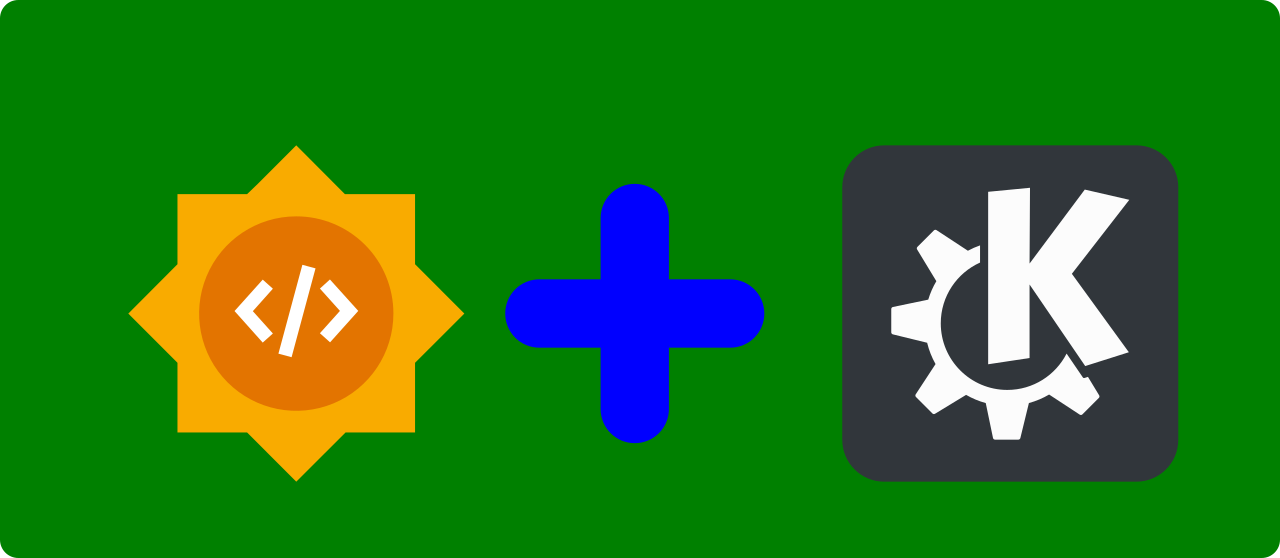
All of KDE's Google Summer of Code (GSoC) projects are complete.
GSoC is a program where students or people who are new to Free and Open Source software make programming contributions to an open source project.
This post summarizes the outcomes of KDE project participating in GSoC 2024.
Projects
Arianna
Ajay Chauhan worked on porting Arianna from epub.js to use Foliate-js. The work will hopefully be merged soon.

(Courtesy of Ajay Chauhan, CC BY-NC-SA 4.0)
Frameworks
Python bindings for KDE Frameworks:
Manuel Alcaraz Zambrano, implemented Python bindings for KWidgetAddons, KUnitConversion, KCoreAddons, KGuiAddons, KI18n, KNotifications, and KXmlGUI. This was done using Shiboken. In addition, Manuel wrote a tutorial on how to generate Python bindings using Shiboken. The complicated set of merge requests are still being reviewed, and Manuel continues to interact with the KDE community.
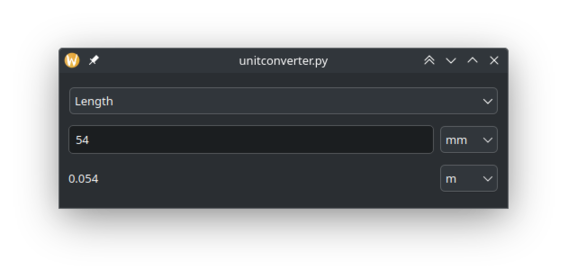
(Courtesy of Manuel Alcaraz Zambrano, CC BY-NC-SA 4.0)
KDE Connect
Update SSHD library in KDE Connect Android app
The main aim of ShellWen Chen's project was to update Apache Mina SSHD from 0.14.0 to 2.12.1. The older version has a few listed vulnerabilities.
The newer library required additional code to enable it to work on older Android phones, up to Android API 21.
KDE Games
Implementing a computerized opponent for the Mancala variant Bohnenspiel:
João Gouveia created Mankala engine, a library to enable easy creation of Mancala games. The engine contains implementations for two Mancala games, Bohnenspiel and Oware. Both games contain computerized opponents, João also started on a QtQuick graphical user interface. The games are functional, but additional investigation on computerized opponents may help improve their effectiveness.
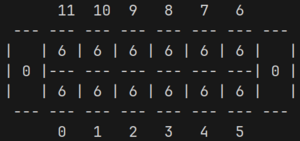
(Courtesy of João Gouveia, CC BY-SA 4.0)
Kdenlive
Improved subtitling support for Kdenlive:
Subtitling support has been improved for Kdenlive. Chengkun Chen added support for using the Advanced SubStation (ASS) file format and for converting SubRip files to ASS files.
To support this format, Chengkun Chen also made subtitling editor improvements. The work has been merged in the main repository. Documentation has been written, and will hopefully be merged soon.

(Courtesy of Chengkun Chen, CC BY-SA 4.0)
Krita
Creating Pixel Perfect Tool for Krita:
Ken Lo worked on implementing Pixel Perfect lines in Krita. As explained by Ricky Han, such algorithms remove corner pixels from L shaped blocks and ensure the thinnest possible line is 1 pixel wide. Implementing such algorithms well is of use not only in Krita, but also in rendering web graphics where user screen resolutions can vary significantly. The algorithm was implemented to work in close to real time while lines are drawn, rather than as a post processing step. Ken Lo's work has been merged into Krita.

(Courtesy of Ken Lo, CC BY 4.0)
Labplot
Improve Python Interoperability with LabPlot
Israel Galadima worked on improving Python support in LabPlot.
Shiboken was used for this and it is now possible to call some of LabPlot functions from Python and integrate these into other applications.
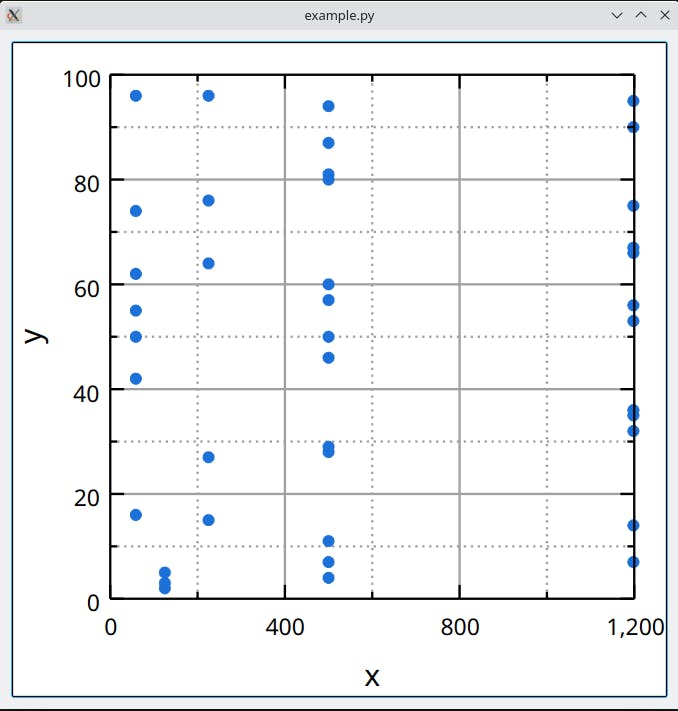
(Courtesy of Israel Galadima, CC BY-SA 4.0)
Kuntal Bar added 3D graphing capabilities to LabPlot.
This was done using QtGraphs. The work has yet to be merged, but there are many nice examples of 3D plots for bar charts, scatter and surface plots.
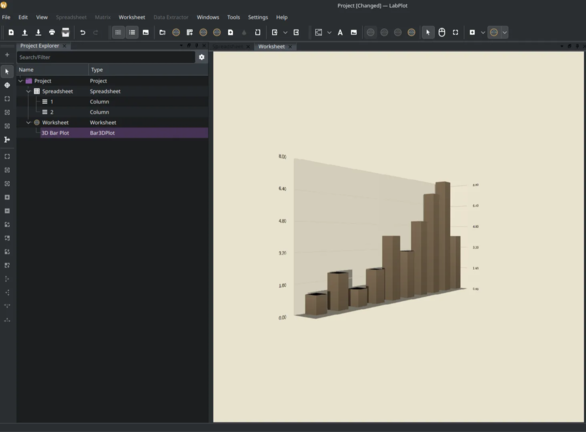
(Courtesy of Kuntal Bar, MIT license)
Okular
Forms/Javascript support improvement for Okular:
Pratham Gandhi worked on improving the forms/Javascript support in Okular. Around 25 requests have been merged to improve various features, some in the backend and some directly visible, such as fixing the size of the radio buttons or check boxes, or the one pictured below to improve the handling of floating numbers in different locales.

(Courtesy of Pratham Gandhi, CC BY-SA 4.0)
Snaps
Improving Snap Ecosystem in KDE:
Snaps are self contained Linux application packaging formats. Soumyadeep Ghosh worked on improving the tooling necessary to make KDE applications easily available in the Snap Store.
In addition, Soumyadeep improved packaging of a number of KDE Snap packages, and packaged MarkNote.
Finally, Soumyadeep created Snap KCM, a graphical user interface to manage permissions that Snaps have when running.

(Courtesy of Soumyadeep Ghosh, CC BY-NC-SA 4.0)
Next Steps
The 2024 GSoC period is finally over for KDE. A big thank you to all the mentors and contributors who have participated in GSoC! We look forward to your continuing participation in free and open source software communities and in contributing to KDE.
Article contributed by Benson Muite, and Johnny Jazeix under the CC-BY-4.0 license.